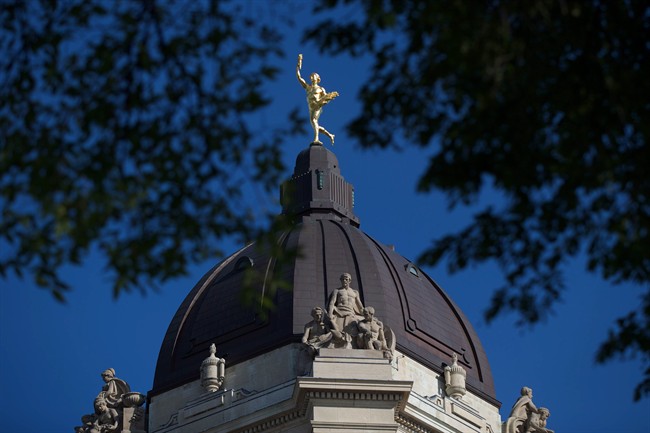A group of First Nations in Manitoba is in court asking for a judicial review related to ongoing work on a multimillion-dollar flood protection project.

The Interlake Reserves Tribal Council, which includes six communities in the province’s Interlake region, says the province has failed to thoroughly consult on a portion of the Lake Manitoba and Lake St. Martin outlet channels project.
The $540-million project is aimed at preventing a repeat of extensive flooding that forced thousands from their homes in First Nations communities in 2011.
The First Nations say the province issued a permit to start clearing a 23-kilometre-long portion of Crown lands to start building an all-season road in 2019 without advising nearby communities.

Lawyers for Manitoba argue the province has started consultations and the permit was not related to the overall project.

Get breaking National news
The tribal council is before Court of Queen’s Bench asking that the decision allowing the access road permit be reconsidered.
The council also wants the court to evaluate the province’s duty to consult before issuing permits that allow Crown land to be cleared.
“Manitoba didn’t even turn its mind to whether it had a duty to consult before clearing Crown land,” Meaghan Conroy, one of the lawyer’s for the tribal council, said Monday during submissions.
There were no discussions about clearing land when consultations began between the province and the communities involved, said Conroy.
Some of the First Nations were surprised to find workers going ahead with construction in January 2019, she said.

Lawyers for the province say notice was provided before the permit work took place to two of the First Nations that would be affected.
“There’s no evidence of a systemic practice from Manitoba for not consulting on permits,” said Sean Sutherland.
The First Nations have expressed concerns about the impact the project will have on the area’s fishing industry and traditional lands.
The project has yet to be approved as environmental regulators in Ottawa have questioned whether the government has done enough to address the communities’ concerns.







Comments